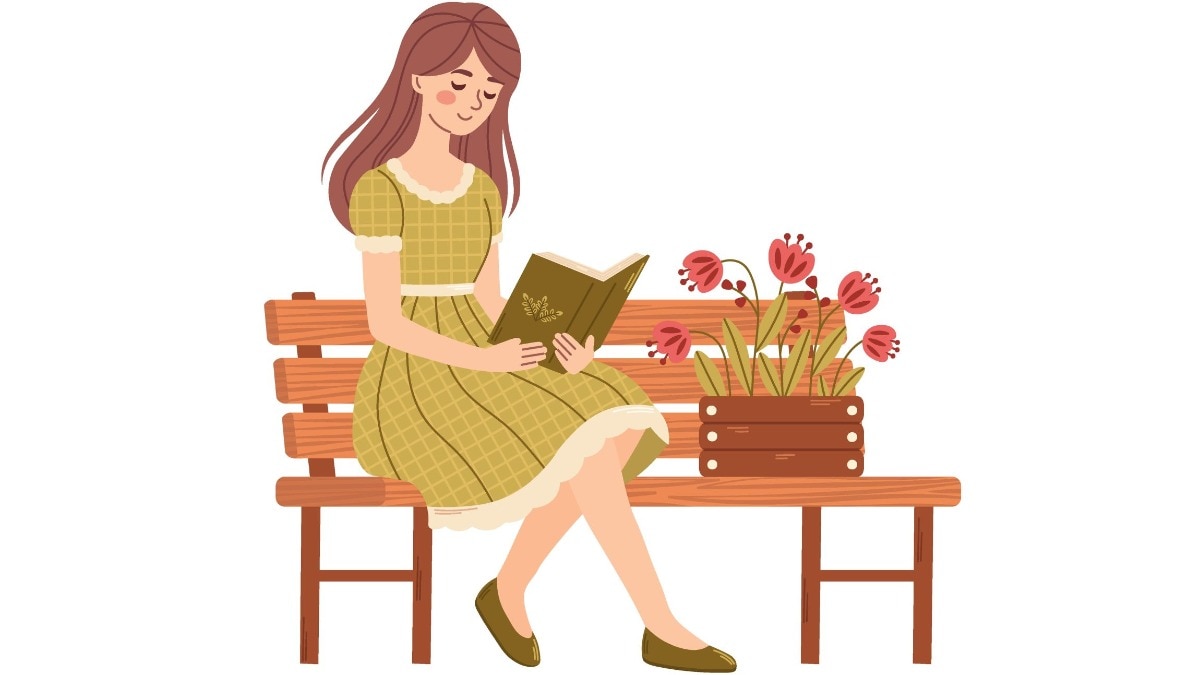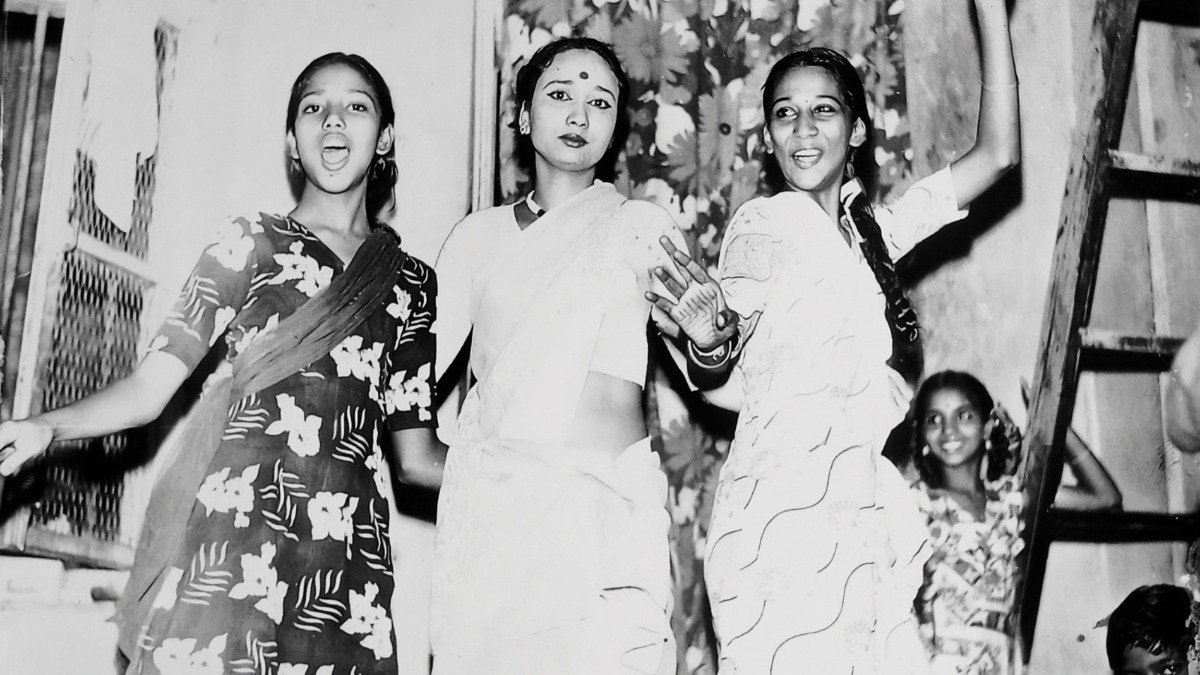A mother's exploration of the emotional and physical toll of childbirth, the pressure of perfection, and the journey toward self-acceptance
In a raw, unfiltered reflection, a mother talks about coming to terms with being just okay.


In our apartment, on a sticky August afternoon, I floated in the abyss that enveloped my brain after giving birth. It might have been two weeks since the delivery, but could’ve just as easily been six. My body, which at the time I hated, waged a war against me. My darkened nipples bled a deep crimson, my field of vision blurred into a perpetual Rorschach test; and my back, hunched over with heavy breasts and guilt, froze in a concave coil, refusing to stand straight.
The landscape of my mind had been transformed by the fog of time. In the distance, wisps of the past teased my present. Not too long ago, hadn’t I experienced... joy?
I remembered walking through a market when I was pregnant. Crowded places in Delhi are primed for gawking and uninvited arm grazing. But my body felt at ease, and I realised that men weren’t staring, but instead reverently lowering their gaze as I walked by, belly first.
Large parties, primed for the spewing of diamond-encrusted daggers of judgement by glamorous aunties, were another space where I generally felt uncomfortable. But now, they had changed their tune to a coddling “these young girls are so enterprising, no?” as we spoke of a short film I was directing while being pregnant.
In my 32 years as a woman of Delhi, I had never felt such comfort of mind and body. Nine months of swimming in progesterone with a swollen belly had elicited unfamiliar reactions from people. It was cosy.
And then, I was cut up and ripped open.
After several hours of chemical inductions, artificial membrane rupturing, stalled labour, nitrous oxide reactions, and an epidural, the home—in which I had held my son—was expelled, and my body became an unchartered, broken territory. I was foolish to think that my body would have any part to play in the birth of my child once I reached the hospital. They did send me off though with a neatly wrapped gift of painkillers and an SOS Xanax. Congratulations! You’ve had a boy!
You are now a mother—that most celebrated provider of someone else’s insecurities.
“Mother” became a delirious amalgamation of competing hallucinations of “Perfect Mother.” Someone suggested that Mother is the one in control—so I put my son on a feeding schedule with he was two-weeks-old, and sleep trained him at three months. I was told that Mother operates on a magically gleaned intuition, instinct from the gut—of which I had none. “Don’t overthink it. Mothers know what to do.” But I didn’t know. I didn’t have that plush mother-child connection that everyone talked about. The one I saw on Pottery Barn. I had the perfect cot, the perfect feeding pillow, and the imperfect desire to escape it all.
Friends and family didn’t notice me. They came over to see my baby, and every discomfort he had, became my fault. My body’s fault. Eat fenugreek to increase milk production. Don’t use cloth diapers. Are you doing skin on skin? Your kid is so tiny. Why is your belly still so big? All I heard: What kind of a Mother are you?
My incompetence pushed me into a dark, cold silence. I overheard whispers of depression in the hallway. I hated those words and the people they came from.
Something ugly began to brew. A silent storm. I was angry and guilty for creating and then ruining the life of this wrinkled thing that never left my side. I existed only for this child to exist. The child existed only because of me. And yet, I felt no exchange between us.
My husband became a near-single working parent to our son while witnessing my decay. He gently and rationally spent months trying to pick me up. But rationality bears no consequence with self-inflicted trauma. Our otherwise cozy apartment began to reek of guilt and claustrophobia. I had to escape the ugliness, and we had to do something irrational. Move homes. Begin again.
A new house to be converted into a home. If I couldn’t be the ‘Perfect Mother’, I vowed to become the ‘Perfect Partner’. I painted walls of our new home in the yellows of wilted daffodil leaves, pinks of rose shadows, blues of broken shells, and put up wallpaper. There was an urgent ache to surround myself with reminders that beauty existed and the knowledge that I could have a part in creating it. I created a home for my husband and for our son. Making them happy made me happy. Is that anti-feminist?
I spent hours waiting for my husband to come home from work so that I could stop being just a mother. I conspired with a blinking dot on Find My iPhone to prepare the living room for his arrival—books, blankets, baby-bouncer, brine, brew. Every day for a year, I played that part to perfection. The ritual of rapidly busying myself became part of a ceremonial welcome for my husband after his day of work. The Perfect Indian Wife. With Child.
That act didn’t work. I fell short. Angered by my own limitation, I decided to get back to work. And in the third phase of being perfect, I started directing ad-films again—robotically, without sentiment. Just wanting to be liked led me to dinner parties where my rehearsed answer to the non-committal and slightly nasal question of ‘So, what’s been up?’ became “Not much. Working non-stop. We moved into a new house. And cherishing motherhood! It goes by so fast.”
I desperately tried to assume the unattainable trifecta of Perfect: Mother-Wife-Filmmaker.
The tedious exhibition of joy while burying my ugly, hateful side didn’t last. It was exhausting. And again, I retreated. With no energy left to fight myself, I had to acknowledge my shell. I didn’t try to sterilise, exhibit, or intellectualise it. And that acknowledgment allowed me to crack it open, just slightly, like a pistachio. From my cocooned crevice, I no longer needed to play the part of mother, wife, writer, filmmaker, daughter, or friend in my bid for appreciation or love*. If no one expects anything of me, maybe I can be someone I want to be? Maybe I can be someone I don’t loathe?
In those hours, over those months, time lessened the need for being perfect. I began to notice my son. He became a person to me. Unafraid to lift him and myself up, my back loosened. My hair stopped falling. His wails no longer sent ripples of fear though me, but became whispers of “Mama, I’m here.” And this little human became to me a thing of beauty and private joy.
Five years later, the progression from depressed to not feels simplistic. But perhaps that’s the point? John Steinbeck comes to mind—“Now that you don’t have to be perfect, you can be good.”
*A sentiment shared by Deborah Levy in The Cost of Living.
Lead image: Pexels
This article was first published in Harper's Bazaar India, September issue.
Also read: Female authors explore how crucial it is that women write about their personal experiences










